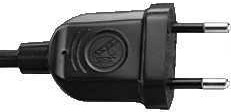Fourteenth meeting of the Open-ended Working Group of the Basel Convention, Geneva, 25 to 28 June 2024
A. Venue of the meeting
1. The fourteenth meeting of the Open-ended Working Group of the Basel Convention on the Control of Transboundary Movements of Hazardous Wastes and Their Disposal (OEWG-14) will be held from 25 to 28 June 2024, at the following venue:
Geneva International Conference Centre (CICG)
17, rue de Varembé
CH-1211 Geneva 20
Switzerland
Tel.: + 41 (0) 22 791 91 11
Internet: www.cicg.ch
B. Registration
2. On-site registration will open from 10 a.m. to 5 p.m. on Monday, 24 June 2024, from 8 a.m. to 5 p.m. on Tuesday, 25 June 2024, and from 9 a.m. to 5 p.m. during the remaining days of the meeting. Security checks will be carried out at the conference centre each time you enter the venue. We strongly recommend that you register on Monday or as early as possible.
C. Security identification documentation and badges for meeting participants
3. Security identification badges are issued to participants upon arrival at the meeting and upon completion of the relevant registration procedure. Meeting participants may collect their security identification badges at the registration desks upon presentation of one of the following identification documents:
- Valid national passport issued by a government recognized by the United Nations;
- Valid national ID card issued by a Schengen State;
- Valid travel document recognized by the UN.
D. Schedule of the meetings
4. On Monday, 24 June 2024, preparatory meetings, including regional groups and the bureau meeting, will be held. Information on the preparatory meetings will be announced on the meeting’s website at: http://www.basel.int/oewg14.
5. The meeting will be opened on Tuesday, 25 June 2024, at 10 a.m. Further information on the schedule of work for the meeting is provided in document UNEP/CHW/OEWG.14/INF/2.
E. Financial support for the participation of developing-country Parties and Parties that are countries with economies in transition
6. Financial support for the participation of representatives of developing-country Parties and Parties that are countries with economies in transition in the OEWG-14 meeting has been provided thanks to the generous financial support provided by the Governments of Finland, France, Germany, Japan and Norway.
F. Guidelines for rules of conduct for meeting participants
7. The attention of meeting participants is drawn to the following guidelines for rules of conduct which are available on the Convention website :
- Guidelines on the use of cameras and audio/video recording devices by participants at meetings of the conferences of the Parties to the Basel, Rotterdam and Stockholm conventions (BRS) and their subsidiary bodies;
- Guidelines for the participation of representatives of observers at meetings of the conferences of the Parties to the Basel, Rotterdam and Stockholm conventions (BRS) and their subsidiary bodies;
- Guidelines on preventing and addressing all forms of harassment at meetings of the Basel, Rotterdam and Stockholm conventions.
G. Side events
8. Requests for side events should be sent, by duly completing the dedicated request form, no later than 30 April 2024 to the Secretariat of the Basel, Rotterdam and Stockholm Conventions at the following e-mail address: susan.wingfield@un.org.
9. Up to two side events can be held in parallel during lunch breaks and in the evenings following the plenary sessions. If more requests for side events are received than there are slots available, organizers of side events may be invited to organize joint events. A draft schedule of side events will be published on the meeting’s website prior to the meeting. For detailed information on side events, including the request form, please consult the meeting’s website. Further information on side events is available at: http://www.basel.int/oewg14/sideevents.
H. Promoting sustainability in the preparation and conduct of BRS meetings
10. Since 2012, the Secretariat has put in place measures to promote environmental sustainability in the preparation and conduct of BRS meetings. In line with the United Nations Climate Neutral Strategy, the Secretariat has been working to improve its environmental performance and has been climate neutral since 2012.
11. Under this framework, the Secretariat has taken steps to make the 2024 meeting of the OEWG-14 climate neutral by offsetting any unavoidable greenhouse gas emissions, in particular from the travel of sponsored participants. Delegates who organize their own travel to and from Geneva are encouraged to offset their travel emissions online. Further information on how to offset travel emissions is available at: https://offset.climateneutralnow.org/howtooffset.
12. In addition, the Geneva International Conference Centre has adopted several other measures to reduce its environmental footprint by reducing its energy and water consumption, and waste production. The use of plastic in take-out containers, sandwich bags, cutlery and cups will be minimized and replaced by alternative packaging using Polyactic Acid and other biodegradable/compostable materials. Participants and delegates are strongly encouraged to bring reusable drinking containers (mugs, bottles) and use them at the cafeteria and water fountains located throughout the venue.
I. Paperless meeting
13. The meeting will be paperless and printed documents will not be available at the meeting. Pre-session documents will be made available on the meeting’s website and in-session documents (such as conference room papers) will be available electronically via wireless intranet.
14. Making a meeting paperless considerably reduces the cost and carbon footprint of the meeting. A paperless meeting also makes it easier for participants to locate documents and allows for faster preparation and distribution of conference room papers.
15. To facilitate the paperless nature of the meeting, participants are requested to ensure the following:
- Each participant should bring a laptop computer containing basic applications, including Microsoft Office Word, Excel and PowerPoint, Adobe Acrobat Reader and updated antivirus software.
- Laptops should be pre-checked for viruses and confirmed as virus-free prior to arrival at the meeting. Virus free laptops are crucial to the success of a paperless meeting.
- Participants should bring a memory stick that has been pre-checked for viruses for the purpose of transferring documents.
- Laptops should be configured for a standard wireless (Wi-Fi) connection. If in doubt, please check with your local information technology expert.
- Participants should bring an appropriate adaptor to enable laptops to be connected to Swiss power sockets.
- When completing the registration form of the meeting, participants should include a current e-mail address, so that they can be sent correspondence relating to the meeting.
J. Visa
16. It is the responsibility of each participant to apply for the required visa. Visas must be obtained prior to arrival.
17. Please note that a Schengen visa is required even for transiting through Schengen zone European Countries. The time needed for a request for visa to be processed may vary from case to case. It is therefore strongly recommended that visa applications be made with sufficient time in advance, so that a Schengen visa can be issued.
18. More information is available on the Swiss Department of Foreign Affairs at the following links:
https://www.eda.admin.ch/eda/en/fdfa.html;
https://www.sem.admin.ch/sem/en/home/themen/einreise.html.
K. Medical and travel insurance
19. The United Nations does not cover life or medical insurance for participants. Therefore, it is the responsibility of the participant or that of your government or organization to ensure adequate insurance coverage prior to travelling to Switzerland.
L. Accommodation
20. It is the responsibility of participants to make their own arrangements for accommodation. The Secretariat encourages all participants to make such arrangements at the earliest possible opportunity. An updated list of hotels offering preferential rates to the United Nations is now available.
M. Local transportation and security
21. Once in Geneva, reaching the conference centre is simple. The international airport (Geneva Cointrin) is about 5 kilometres from the conference centre, a journey of approximately 10 minutes by taxi. The main railway station (Geneva Cornavin) is 2 kilometres from the conference centre and the two are linked by public transport (tramway and bus) and by taxi.
22. Public transport in Geneva is fast, frequent, safe and clean. Bus number 10 links the airport with downtown Geneva, with connections approximately every eight minutes, and train services are also available. Travellers staying in a hotel in Geneva can receive a « Geneva Transport Card » from the establishment. This card allows free use of public transport in Geneva (zone 10) during their stay.
23. The conference centre can be reached from the main railway station by taking bus number 5 (alight at either the Vermont stop or the Varembé stop), bus number 8 (alight at the International Telecommunications Union stop) or tram number 13 or 15 in the direction of Nations (alight at Sismondi).
24. Taxis are easily available and safe, but comparatively expensive. If you need a taxi, call 022 320 22 02 or 022 331 41 33.
25. Although Geneva is a comparatively safe place and violent crime is rare, the incidence of pickpocketing and theft has increased considerably over the last few years. Participants are advised to pay particular attention at the airport, around the Cornavin railway station and in the Paquis district of the city, and to not leave their luggage unattended at any time.
N. Electricity
|
Voltage: 230 volts
Frequency: 50 Hz
Plug/socket: C (CEE 7/16) , J
|
 |
 |
O. Currency
27. Swiss franc (CHF). Average exchange rates: 1 United States dollar ≈ 0.90 CHF; 1 euro ≈ 1.0 CHF.
P. Restaurants
28. The CICG bar and restaurant are located on the ground and first-floor levels. Other cafes, restaurants and shops are within walking distance of the CICG.